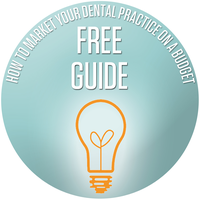Being an ethical dentist is not only the right thing to do; in the long run, it is also the most lucrative thing to do! Patients are more likely to return to your practice when they feel comfortable with and trust you and your staff. But, before you can ask a patient to trust you, you have to be trustWORTHY. Here are some tips on establishing trust with your patients and promoting excellent doctor-patient relationships.

Tell Your Patient, in Detail, Everything You Are Doing
Millions of Americans are afraid of going to the dentist. Whether it is the sound of the drill, a poor prior experience, the anticipation of pain or some other trigger, this phobia often leads to poor oral hygiene and an avoidance of proper dental care. Communicating with your clients, especially those who have a fear of the dentist, could go a long way toward developing your doctor-patient relationship. The more your patient trusts you, the less concern they may have about their safety and the painfulness of the procedure. Before you begin, make sure you have given a detailed explanation of what the patient should expect. Assure your patient that their reactions during the procedure will be taken seriously, and work with them to make them more comfortable. This will allow the patient to face the procedure head on, and hopefully accept it with a bit less stress. Also, approach your patient with an estimate of the cost of the treatment in writing, and make sure it is exactly what you are billing. Some unethical dentists have been known to charge the patient’s insurance for more than the procedure is actually worth, which can lead to a rise in insurance premiums in the long run. Transparency in your practice shows you are upfront and have nothing to hide from your clientele.
Be Candid About Their Care
No one likes to be the bearer of bad news. As you already know, excellent health begins with disease free teeth and gums, so what happens when a patient comes in with signs of disease in their mouth? Many different illnesses present with oral lesions or abnormalities, from cancer to sexually transmitted diseases. If you see a patient has signs or symptoms of a non-dental disease, it is your responsibility as a medical professional to council your patient and encourage them to seek alternate care. While conversations of this nature can be very difficult and embarrassing to have, you could be saving your patient’s life. If the symptoms are caught in time, many of these illnesses can be treated or managed. If you choose not to discuss the potential problem with the patient, the disease could worsen and threaten the patient’s life. Be sure to practice the best chairside manner you can, and remember to listen attentively.
Be Sure to Offer All Viable Options
Oftentimes, there is more than one solution to the patient’s problem. By offering all viable options to the patient, you provide them with the freedom to choose which solution is the best for them. Though the best solution may be an expensive treatment that costs thousands of dollars, that patient may not be able to afford the procedure. This could result with the patient simply ignoring the problem or resorting to do-it-yourself methods, which could be dangerous and lead to a worse problem that what they came in with initially. Conversely, prejudging your patient’s economic means and not offering them certain options is also a disservice to them. Assuming a patient will not have the money to receive the best care would deprive them of what may have been the best solution to their problem. It also may make the patient uncomfortable with you and your practice should they find out about the omission. Offering every solution available allows the patient to weigh their options, compare procedures and feel more in control, which brings us to...
Tell the Patient Why They Should Want the Procedure, Not Just Why They Need it
Studies have shown a strong correlation between emotions and decision-making, particularly in the health industry. It is undeniable that educating a patient will make the decision making process a lot less confusing for them, however it also opens the door for dissent. Whether it is the cost, a perceived lack of time or fear of the dentist, patients can easily find reasons why they should not follow your proposed care plan. For example, you may offer a patient a dental care plan that includes a small filling in one of their molars. While you as a medical professional understand the necessity of this procedure, your patient may be concerned about how it would make their smile look or the cost associated with the treatment. They may also feel like the problem isn’t bothering them enough to take action at this time. Although they understand the need for the filling, their emotions outweigh the logic, and the patient can walk away without giving the filling a second thought. So what would happen if the patient understood that not filling the cavity may result in an unsightly smile? That more painful procedures may be necessary to fix this worsening problem in the future? The patient would be a lot more likely to not allow their emotion to get in the way of their decision and take care of the cavity right away.
Opening up lines of communication with your patients is sure to increase patient retention and contribute to the betterment of your practice. Informed consent is a step toward a healthy doctor-patient relationship, and is a process that the ethical dentist cannot afford to skip. Understand the ethics of health professionals and incoporate them into your practice. Make sure you are open with your patients about their care and your sincere desire to help them... they will surely appreciate it!



